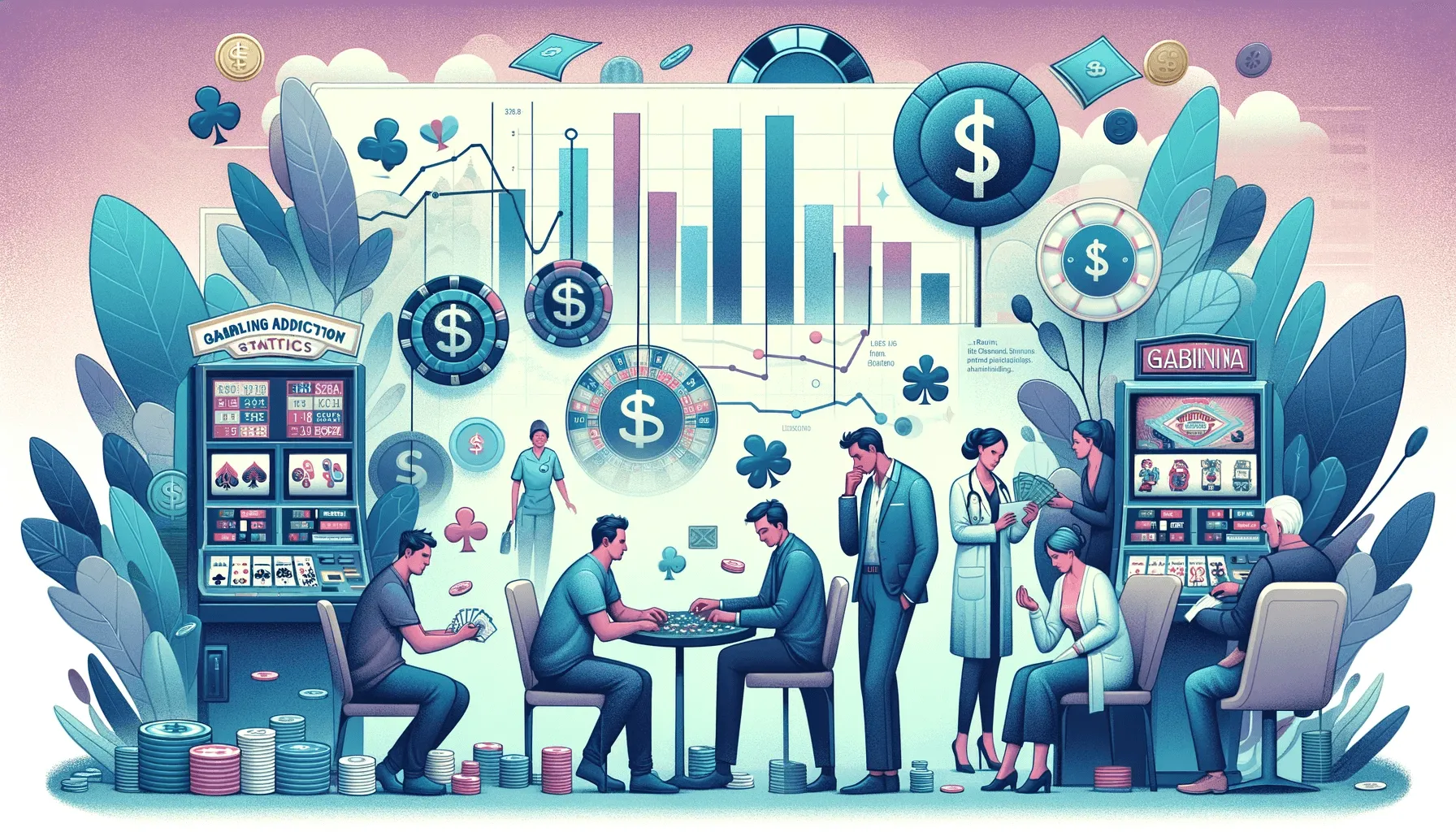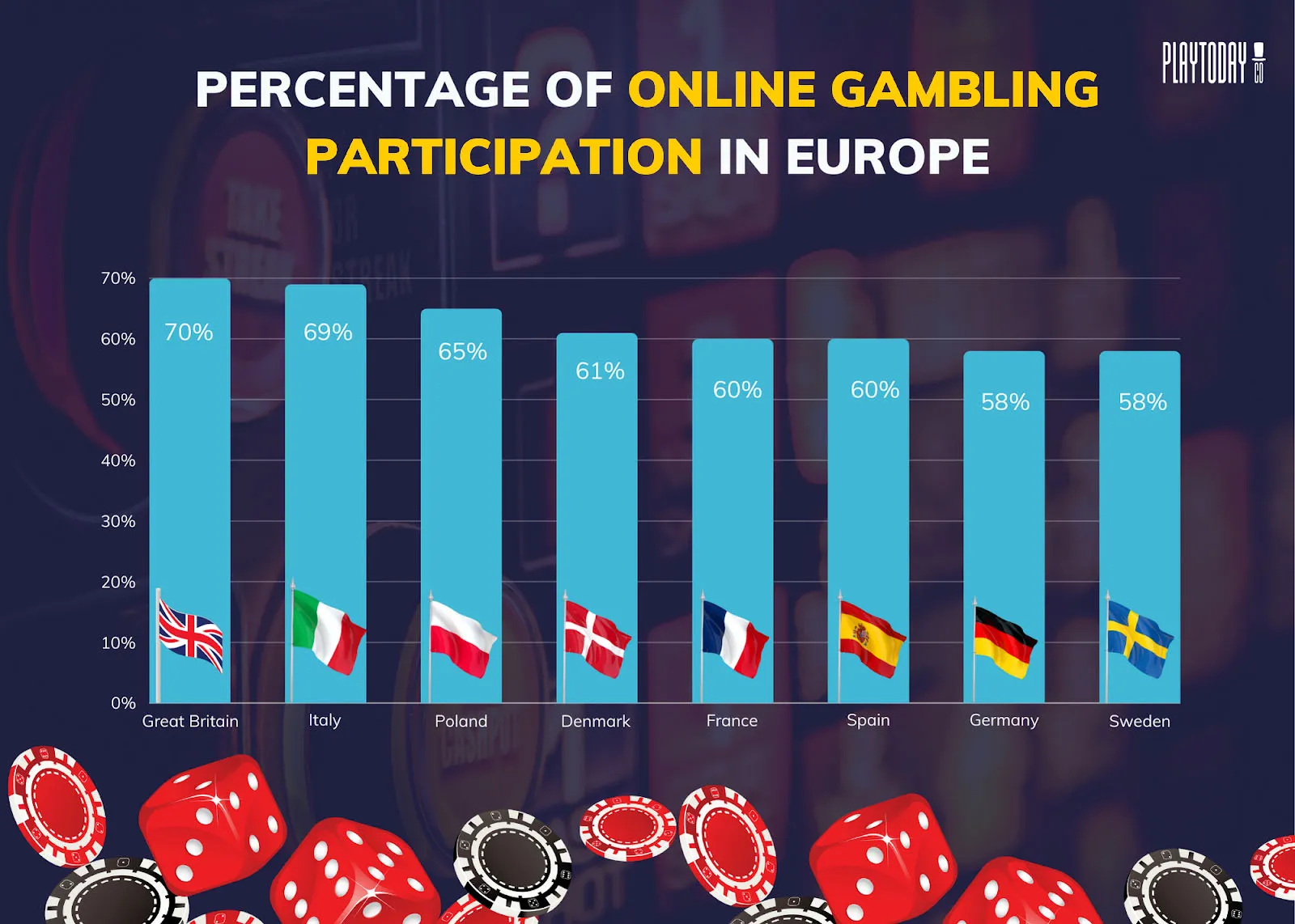The world of gambling has always been a topic of fascination for many individuals. From casino games to online betting, the thrill of potentially winning big draws people in. However, what may start as harmless fun can quickly spiral into an addiction with serious consequences. In today’s society, where gambling is easily accessible and glamorized, it is crucial to understand the statistics behind gambling addiction and the resources available for those seeking help. In this article, we will delve into the alarming reality of gambling addiction and explore various aspects of this issue.
Understanding Gambling Addiction

Gambling addiction, also known as compulsive gambling or gambling disorder, is a mental health disorder that involves an uncontrollable urge to gamble despite negative consequences in one’s life. It is considered a behavioral addiction, where a person becomes dependent on engaging in certain behaviors despite harmful outcomes. According to the American Psychiatric Association, gambling addiction is classified under the category of “substance-related and addictive disorders” in the Diagnostic and Statistical Manual of Mental Disorders (DSM-5).
Signs and Symptoms of Gambling Addiction
Just like any other addiction, gambling addiction has distinct signs and symptoms that can help identify the condition. Here are some common indicators of a gambling problem:
- Preoccupation with gambling and constantly thinking about the next opportunity to engage in it.
- Needing to increase the amount of money spent on gambling to achieve the desired level of excitement.
- Making repeated unsuccessful attempts to control, cut back, or stop gambling.
- Restlessness or irritability when attempting to cut down or stop gambling.
- Chasing losses by returning to gamble more after losing money.
- Lying to hide the extent of one’s gambling activities.
- Jeopardizing or losing significant relationships, jobs, or educational/career opportunities because of gambling.
- Using gambling as a way to cope with stress or escape from problems.
Who is At Risk for Gambling Addiction?
Gambling addiction can affect anyone, regardless of age, gender, or socioeconomic status. However, certain risk factors may increase the likelihood of developing a gambling problem. These include:
- Having a family history of gambling addiction.
- Having a history of substance abuse or mental health disorders.
- Experiencing high levels of stress, anxiety, or depression.
- Being exposed to gambling at an early age.
- Having a personality trait of impulsivity or seeking excitement.
- Having significant financial resources or access to credit.
The Alarming Statistics of Gambling Addiction

The prevalence of gambling addiction varies across countries and cultures, but it is estimated that 0.2% to 5.3% of the global population suffers from this disorder. In the United States alone, about 2 million adults (1% of the population) meet the criteria for gambling disorder in a given year. These numbers are not just mere statistics; they represent real people and their families who are struggling with the consequences of gambling addiction.
Gender and Age Distribution of Gambling Addiction
Historically, men have been more likely to develop gambling problems than women. However, recent studies show that the gender gap is closing, with women making up nearly half of all individuals with gambling addiction in the United States. One possible reason for this shift could be the increasing availability of online gambling, which eliminates traditional barriers such as physically going to a casino.
In terms of age distribution, gambling addiction can affect people of all ages, but it is most prevalent among younger adults aged 18-35. However, older adults are also at risk, particularly those who are retired and have more free time and disposable income.
Impact of Gambling Addiction on Mental Health
As mentioned earlier, gambling addiction is classified as a mental health disorder, and it often co-occurs with other mental health conditions. According to the National Council on Problem Gambling, around 57% of individuals with gambling disorder also have a co-occurring mental health issue, such as anxiety, depression, or substance abuse.
Furthermore, gambling addiction can lead to severe psychological distress, including feelings of shame, guilt, and hopelessness. It can also contribute to the development of suicidal thoughts and behaviors. In fact, studies have shown that problem gamblers are six times more likely to attempt suicide compared to non-gamblers.
Financial Consequences of Gambling Addiction
One of the most significant consequences of gambling addiction is its impact on finances. Problem gamblers often experience financial difficulties due to the excessive amount of money they spend on gambling. This can lead to serious debt, bankruptcy, and even loss of assets. Moreover, gambling addiction can strain relationships and cause tension within families, further adding to the financial burden.
According to the National Council on Problem Gambling, each person struggling with gambling disorder generates an average of $7,000 in debt, resulting in a total of over $13 billion in debt nationwide. The financial consequences of gambling addiction not only affect the individual but also have a ripple effect on the community and economy.
Resources for Help and Support
Despite its alarming statistics and destructive consequences, gambling addiction is treatable, and recovery is possible. Seeking help and support from trusted resources is the first step towards overcoming this disorder. Here are some options for individuals struggling with gambling addiction:
Therapy and Counseling
Therapy, particularly cognitive-behavioral therapy (CBT), has been proven to be effective in treating gambling addiction. CBT helps individuals identify and challenge their distorted thoughts and beliefs about gambling, develop coping skills to manage urges to gamble, and learn healthier ways to deal with stress and emotions. It can be done individually or in a group setting, depending on the needs and preferences of the person seeking treatment.
Counseling, on the other hand, can provide a safe and non-judgmental space for individuals to talk about their gambling problem and its impact on their lives. It can also help in addressing underlying issues that may have contributed to the development of the addiction.
Support Groups
Joining a support group, such as Gamblers Anonymous or SMART Recovery, can be a valuable part of the recovery journey. These groups offer peer support and a sense of community, which can be beneficial for those feeling isolated and ashamed of their addiction. They also provide a platform for sharing experiences, learning from others, and receiving encouragement and accountability.
Hotlines and Online Resources
For those who are not ready to seek face-to-face therapy or attend support groups, hotlines and online resources can be a helpful starting point. The National Council on Problem Gambling offers a 24/7 confidential helpline (1-800-522-4700) for anyone seeking information, support, or treatment options for gambling addiction. There are also various websites, online forums, and chat rooms dedicated to helping individuals with gambling problems.
Addressing Gambling Addiction: A Collective Responsibility

Gambling addiction is not just an individual struggle; it is a societal issue that requires collective action to address it effectively. Here are some ways we can all contribute to tackling this problem:
Education and Awareness
One of the most effective ways to combat gambling addiction is through education and awareness. By promoting responsible gambling practices and educating people about the dangers of excessive gambling, we can prevent the development of gambling disorders and reduce the stigma surrounding it.
Responsible Gambling Policies
Governments and regulatory bodies play a crucial role in implementing responsible gambling policies and regulations. This includes measures such as age restrictions, advertising guidelines, and mandatory funding for treatment programs for problem gamblers.
Corporate Social Responsibility
Gambling operators also have a responsibility to promote responsible gambling and provide resources for those experiencing difficulties with their products. This can include self-exclusion programs, limit-setting tools, and funding for treatment and support services.
In Conclusion
Gambling addiction is a complex issue that affects millions of people worldwide, with devastating consequences on individuals, families, and communities. It is crucial to understand the alarming statistics behind this disorder and take steps towards addressing it, including seeking help and support and promoting responsible gambling practices. By working together as a society, we can reduce the prevalence of gambling addiction and provide hope and recovery for those struggling with this disorder. Remember, help is available, and you are not alone.


